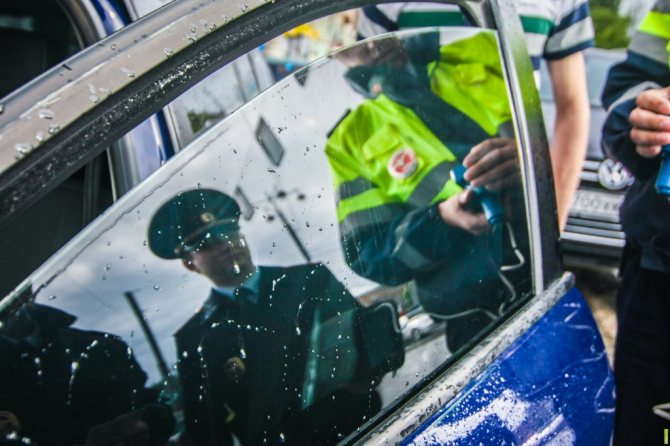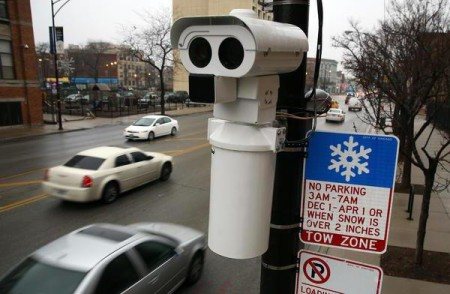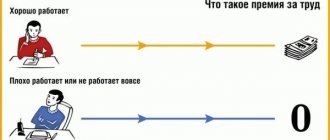As soon as you receive a decision on an administrative violation case, which will indicate the amount of the fine and the need to pay it, you will have 10 days to challenge the decision. And that time starts to run out in certain situations when you receive it in person by mail. Here we are talking about calendar days, and not about working days, which is the case in some authorities.
The deadlines may be restored, but for this purpose an appropriate application is submitted, which is attached to your complaint against the actions of the officials who made the decision. At the same time, it is very important to provide all the evidence that will be in your favor. The reasons for recovery may be illness, being treated in a hospital, a long business trip, or other compelling reasons.
The term for bringing to administrative responsibility, which is two months, is also of no small importance. Some rule violators deliberately delay receiving the decision by mail and as soon as 2 months have passed, the court decides to cancel the fine that was imposed.
Contents of the complaint
When writing the text of a complaint, it should contain several points and parts that will be of significant importance:
- Information about the person to whom the complaint is addressed, court data. After this, you can start writing the text of the document.
- If you really were not driving the vehicle at the time the offense was committed or you are illegally brought to administrative responsibility in the form of a fine, then it would not be amiss to indicate the points of the rules and regulations that were violated. They will confirm that you are right, and the court authorities will take this into account.
- You can also name witnesses in your complaint if they are available. Witnesses will be able to confirm the words you said. The court will have to interview them during the consideration of the complaint.
- Express your wishes regarding the complaint. This may be a complete termination of the administrative process, consideration of the case anew, and other cases.
- If there are certain documents that may be significant, then they should also be indicated in the complaint in the form of an attachment on a certain number of sheets. If available, you can also attach CCTV footage or photographs.
Complaint to the prosecutor's office about unlawful actions of a traffic police officer
If an illegal decision of a traffic police officer to bring to administrative responsibility for violating traffic rules during a road accident is subject to appeal, then a complaint against the decision on an administrative offense will be required. In such cases, it is possible to challenge the procedural documents drawn up by the inspector at the scene of the accident and after it was recorded.
Fearing that by refusing to be tested at the specified level, a protocol of refusal to be examined would be drawn up against me, I passed the test, despite the absence of attesting witnesses. According to the police officer, the test was positive. I began to insist on a medical examination, since I did not drink alcohol and refused to give money.
Then, having stopped two drunken men passing by, __________ entered them as witnesses in the examination report and, in their presence, drew up a protocol on my removal from driving, distorting the time of drawing up the protocols. Then both inspectors began to draw up some papers without my participation, copies of which were not given to me. Their content was not announced to me, the text was not read out. To my requests to explain what was written there, the police refused.
If at the same time the inspector independently opened the trunk, hood or doors and there is testimony or other evidence to support this, then it is necessary to indicate this here because this draws on the article “Excess of official authority” because this is classified as a search, and the search is carried out only with prosecutor's sanctions).
Throughout the entire time of communication with the inspectors, the inspector behaved aggressively towards me, putting psychological pressure on me. Thus, he violated the requirement of Article 19 of the Order of the Ministry of Internal Affairs 185. Considering the above, I ask: 1. Initiate an administrative case against the traffic police inspector under Article 19 ,1 Code of Administrative Offenses of the Russian Federation “Arbitrariness.”2.
It must indicate:
- the name of the authority to which it is sent;
- Full name of the applicant;
- phone number;
- place of registration, residence of the applicant.
At the beginning of the complaint, you need to provide maximum information about the traffic police officer who violated the law, indicating:
- his full name;
- job title;
- workplace;
- available contact details;
- basic data from the ID with the token number;
- license plate number, side number of the vehicle of the traffic police representative (if there was a vehicle).
IMPORTANT! The more data regarding the representative of the state traffic inspectorate is indicated, the faster measures will be taken for the illegality of his actions.
Where and how to complain about unlawful actions of traffic police officers The procedure for citizens to file complaints against officials, regulated by the Civil Procedure Code of the Russian Federation, is duplicated in all specialized regulations.
In this case, a higher authority will support the side of the policeman against whom the driver made claims. You need to submit a statement to the prosecutor's office after you have used the opportunity to complain to your superiors about an employee who has violated the law.
How to complain In order for the applicant’s actions to have a positive result, you need not only to be confident in the validity of your accusations against the traffic police officer, but also to know how to write a complaint. The procedure regulating the possibility of citizens turning to the prosecutor's office is regulated by the Code of Civil Procedure, which describes in detail the procedure for drawing up and submitting such complaints.
If the complaint is being considered by the court, then the applicant must indicate exactly what factual circumstances relevant to the case can be confirmed by the invited persons. Possible nuances For some reason, many people think that passengers in the car cannot act as witnesses in the case, since they are stakeholders.
But in accordance with the legislation of 2021, it is possible to use witnesses in a vehicle in any situations and circumstances of the case.
Therefore, if during communication a traffic police officer behaved unlawfully, showed disrespect, or insulted the driver in the presence of passengers, then they have the right to act as witnesses.
There is no general application form for a complaint to the boss of the offending employee.
When writing, you should rely on Article 131 of the Code of Civil Procedure of the Russian Federation, which describes how the application should look like.
How and to whom to complain about the action or inaction of a traffic police officer - instructions on how to defend your rights
- Introductory. This includes the “header” of the document. Be sure to find out the full name of the body where you are filing the complaint, and the initials of the chief. Don't forget to include your full name, residential address and contact phone number. After the “header”, in the middle of the line, write the name of the document, without quotes and a period – in our case, “Complaint”.
- Content, or main part. Here you must reveal the whole essence of your appeal. Indicate all information regarding illegal actions or inactions of the traffic police officer, enter all his data that you know.
- Final. Don't forget about the documentation base here. Indicate where you have already contacted to solve the problem, who witnessed the violation, what materials are available - these could be photographs, videos or audio recordings. It is better to include all documents in a list. At the end, be sure to put your date and signature with a transcript.
When writing in the header of the document, indicate the full name of the boss and the name of the department to which you are applying.
You can also simplify the form without specifying your requirements - as, for example, in court, you just need to write: “I ask you to look into this situation and bring the offender to justice.”
We invite you to read: Appealing the ban on car registration by bailiffs
A statement to law enforcement agencies or a court is almost the same.
- At the beginning, on the upper right side of the sheet, indicate the full name of the institution or authority you are applying to. Don't forget to include your address and contact information.
- Describe briefly but clearly what happened. Enter all the necessary information.
- Indicate what damage was caused due to the violation.
- Describe where you have already applied and to what authorities.
- State your requirements.
- Prepare a documentation base, list all the materials confirming what happened.
Writing an application to the court and prosecutor's office is a complex process. The main thing is to write a statement without errors, corrections, with a full description of the violation that occurred.
Still have questions? Just call us:
Submission rules
It would be a good idea to study the legislation if you want to make a decision to challenge the fine that has been imposed on you. There is also a certain procedure for obtaining an answer to how to appeal a traffic police fine. This is regulated by the Code of Administrative Offenses, namely Chapter 30.
The complaint must be submitted to the very body that, in your opinion, made the unlawful decision. When the traffic police department receives a complaint about the actions of an official, they have a period of three days to send it to a higher authority. If your decision concerns a court order, the judge must send your complaint to a higher authority on the same day it is received. When a person receives a complaint, but does not have sufficient authority to consider it, he has three days to transfer it to the body that will make a decision.
In order not to waste even these days, you can immediately send a document with the desire to challenge the decision to a higher authority regarding the court or internal affairs body. However, you will not be required to pay a state fee for consideration of the complaint.
Possible violations by the traffic police
To file a complaint, it is important to know the existing powers of traffic police officers, which they may exceed. Some of their actions will be instantly classified as illegal, and you can immediately issue a written statement of the established form. An employee has a large number of powers, but should he stop at the most basic ones?
- Stopping transport if necessary. The ban is only at intersections, in dangerous places where visibility is noticeably limited. But even all this is very difficult and almost impossible to appeal and achieve justice. Of course, you can make a complaint, but it will not bring any results.
- The right to demand that all documents relating to the car, including a driver’s license, be presented in person.
- Confiscation of a driver's license occurs only in one case - when the driver himself is intoxicated.
- Drawing up protocols, as well as drawing up decisions on the basis of which the driver is brought to administrative responsibility.
- Checking the trunk and other compartments of the vehicle, requiring the driver to exit the vehicle. But even this requires compelling reasons, which include the presence of signs that the driver is intoxicated, the emergence of suspicions that the technical condition of the car is in good working order. This all points to a subjective assessment on the part of the traffic police officer. Thus, it is unlikely that it will be possible to appeal such actions by proving his inappropriate behavior on the road.
If the inspector carries out his activities within strictly established limits, then there is almost no point in filing complaints with the relevant authorities. You can do this, no one has the right to prohibit it, but the effectiveness will most likely be minimal or negligible.
Consideration of the complaint and results
Most often, disputes arise over the installed video control cameras that record drivers speeding. To challenge a fine from a camera, the best way to start is to go to the center for automatic recording of offenses, where you will be shown the camera recording in color. You can clarify any difficult issues that arise with your representative.
But this may not suit the driver either. Then you will have to write a complaint and send it to CAPAF, where initially he will be called for an administrative review, and if there is no compromise, a trial will take place. In this case, one should take into account the fact that the readings of the device will be a priority when considering a complaint in court. After all, he undergoes the appropriate certification and has certain documents for this. Your arguments that the DVR indicated a completely different speed and there is a recording itself will not be taken into account, since this device does not pass mandatory certification. Here you can adjust everything as you wish.
Thus, when considering a complaint in court, the following decisions are made:
- The fine remains unchanged, which must be paid within the prescribed time frame.
- The fine is canceled, and the administrative violation case itself is terminated.
- The fine is canceled, but the case is sent back for consideration again.
Claim for illegal drawing up of protocol
The legislation does not establish a strictly regulated form of an application to appeal a decision of the traffic police, however, when drawing it up, it is necessary to be guided by the general rules of office work.
The application includes the following components:
- introductory – to whom the paper is addressed, indicating the address and name of the authority, position, full name of the official recipient, a link to the details of the case to be considered;
- installation – description of brief circumstances of the violation;
- motivation - a continuation of the previous part, indicating objective facts obtained as a result of consideration of the issue, points and names of regulatory documents that must be followed;
- final – sets out the conclusion on the need to cancel the previously adopted resolution with reference to the current legislative norms;
- attachments - a list of documentation is provided confirming the correctness of the arguments presented (witness testimony, photos, video materials, audio recordings, etc.).
We suggest you read: Unfounded complaints to the front office
The preparer must sign at the end of the document indicating the transcript of the signature and the date of preparation of the petition. An example of an application to appeal a traffic police decision is presented here.
The list of rights and responsibilities of a traffic police officer is recorded in the administrative regulations of the Ministry of Internal Affairs. The inspector may:
- stop moving cars;
- check documents;
- draw up a protocol on an administrative offense;
- make a decision to hold the citizen accountable.
A traffic police representative may ask the driver to leave the car or open the trunk. However, this is possible if the inspector suspects that there are technical faults in the car or that the driver is intoxicated. It is pointless to complain about such requests from representatives of authorized bodies. All of the above circumstances are the result of a subjective assessment of traffic police officers.
A citizen may be accompanied or sent to a place for medical examination to determine the presence of alcohol or drugs in the body. Inspectors can use photo, video and audio equipment, as well as information systems, to supervise traffic.

If an urgent situation arises, the inspector can use a vehicle that belongs to state, municipal authorities, public associations and organizations. In exceptional cases, it is possible to confiscate cars whose owners are individuals.
Employees of the State Traffic Inspectorate also have a number of responsibilities. They have to:
- Know the constitution and other current regulations.
- Do not violate the rights of traffic participants.
- Immediately arrive at the scene of a crime or accident, eliminate security threats, document the circumstances of the violation and ensure the safety of traces of the crime.
- Provide first aid if people have been injured in an accident and the ambulance has not yet arrived.
- Find out the circumstances of offenses committed in transport and traffic, and also take measures within the framework of their powers to prevent crime.
- Ensure, within the limits of competence, the safety of citizens and public order.
- Take measures in emergency situations to save citizens.
- Take part in the search for persons who committed a crime.
- Seize documents from citizens that show signs of falsification.
- Notify authorized bodies of each case of inducement to commit a corruption offense.
Road inspectors have other rights and have responsibilities enshrined in Chapter No. 3 of February 7, 2011 of the Law “On the Police”.
A complete list of the rights and responsibilities of citizens when interacting with traffic police officers is also determined by the administrative regulations of the Ministry of Internal Affairs. In accordance with it, persons have the right to appeal against the actions or inactions of the inspector that led to the violation of rights and freedoms. You must contact a higher official or head of a government agency.
If there are still controversial issues, you can also consult for free via chat with a lawyer at the bottom of the screen or call the following numbers:
7
Moscow;
7
Saint Petersburg;
7
Free call for all of Russia.
To write a complaint against a traffic police officer, a person must know the current legislation and traffic rules. This will ensure that a violation has actually been committed. In any other situation, the complaint will not be considered.
The general form for filing a complaint against a traffic police officer is identical, regardless of the situation. However, the specifics when filling out documents may change. So, if a traffic police officer illegally drew up a protocol, the text of the appeal will have to indicate the document number, as well as describe in detail all the nuances of what happened, referring to the norms of the current legislation. At the end of the application, you will need to state the requirements and provide links to papers that serve as evidence.
Controversy over CCTV cameras

Not always cameras can show valid data that the car exceeded the permissible speed limit or that the owner was actually driving. In this case, motorists try to look for maximum loopholes that will allow them to avoid liability. In addition, the owner can provide information that the camera readings are unreliable. If this happens in reality, then you will definitely win the argument.
If you want to prove that you were not driving the car at the moment indicated on the camera, you can show a travel certificate, a trip to the sea, or any tickets to another city. Even an ordinary certificate from the place of work stating that the person was at the place of work will play a significant role.
In certain situations, recording from a DVR installed in the car may also be taken into account. But there is a short storage period for the recording, and judges often trust the cameras installed. When you bring to the hearing another person who was allegedly driving a car and exceeding the speed limit, information about him must be included in the OSAGO policy. Otherwise, this option will not be counted.
The basis for canceling the decision may be a thorough examination of the photo from the scene of the administrative offense. The exact information about the registration plate is not always displayed there, there are no certain road signs in the photo, the car is completely different, and not yours. This is exactly what will serve as the basis for the fact that it will be much easier to appeal the decision and get an answer on how to appeal a fine from a camera.
Removal of fine
The fine can be lifted by government authorities in the case where you were able to prove that the administrative violation did not occur at all. There may be situations where the driver's actions are insignificant, and in this case a warning will be sufficient.
The fine will also be lifted in the case where they could not prove your guilt, and your actions were absolutely necessary in order to prevent the commission of a more serious offense or crime. When the statute of limitations for prosecution, which is two months, expires, you cannot be subject to a fine. And another option is when you have already been prosecuted for this offense.
Save
Save
Save
Save






